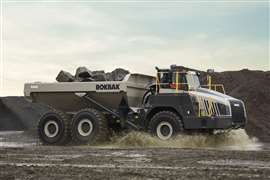Meetings schedules: SCRA comment September 2020
19 October 2020

Running a successful transport or crane and rigging company is often incumbent on the execution of management meetings that allow leadership to delegate and keep people accountable and responsible to achieve the results they want.
While some members of an organisation tend to shy away from too many meetings, as an owner or manager, meetings simply allow you to run a better company which, in turn, gives you the flexibility and time to plan, strategise, sell and ultimately increase profitability.
Instead of creating an environment where you need to make every decision and play the role of full-time problem solver, a well-developed and consistent meeting schedule affords an opportunity to leverage your time while still staying in touch with contractors, estimators, project managers, field supervisors and foremen.
Too often in the construction and transport industry, owners and others in leadership positions tend to feel limited by set schedules, opting instead to favour the ability to jump immediately on an issue if a problem arises. The danger here is that putting out fires can become a way of doing business.
Run the spectrum
One immediate benefit that can evolve out of a regular meeting schedule is performance tracking. Without it, results can often fall to a lower tier on the priority list for just about everyone involved. Something to keep top of mind: meetings equal accountability. That said, a productive leader creates a scorecard of sorts – to record each meeting attendee’s performance on every job during the week. It will allow everyone, foremen and supervisors, to know where each person is landing with their responsibilities while tracking and hitting their goals. It also keeps everyone targeted and focused, rather than working blindly or patchworking together different checklist items without a sense of order or true purpose.
The discussion can then turn to results, progress, mitigation if needed, crew and equipment needs, safety – pretty much every component of a successful jobsite. And when everyone is dialled in on this process, the commitment emerges, and the buy-in will only reflect positively throughout every aspect of the project.
To that end, the meetings themselves must represent a commitment of sorts – landing the same time every week and month. They should also never be postponed or cancelled as that can plant seeds of doubt and distraction within attendees while also potentially replicating this behaviour elsewhere throughout the project. If an owner simply can’t make the meeting, the proper person should be put in charge of it so the agenda continues as designed.
As we’ve learned via the Covid era, we don’t have to be in-person to have these meetings. While in-person is preferred, we can all appreciate the value of the video call or similar conferencing software at this point.
As for organising by purpose, annual meetings should include strategic planning, while all-company town hall meetings should occur bi-annually – giving everyone in the organisation a “state of the company” snapshot.
Monthly meetings can run the spectrum: business development, financials and accounting, work flow, safety, operations, quality control, workforce, technology, systems and procedures, project management, sales and marketing.
Weekly meetings also cover a range, from sales, proposals and estimating, to bid follow-up, onsite goal-setting and target-reaching with superintendents and foremen and even material needs, subcontractor performance, safety and customer issues.
Ultimately, a dependable meeting schedule allows you, as a leader, to stay on top of the productive success of your company’s day-to-day operations, while maintaining some personal freedom, but continuing to cultivate and drive culture. A good question to consider both now, and in the future: What do our meetings say about this company? Are they making us – or breaking us?





